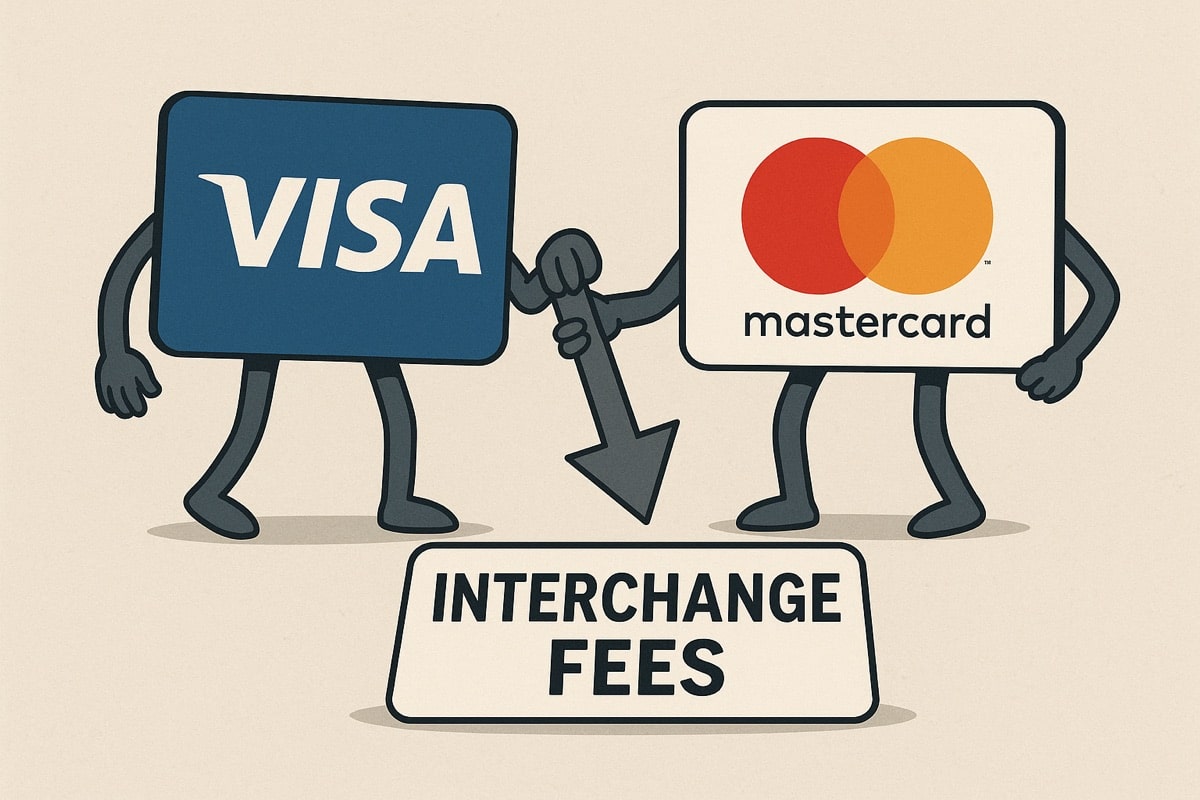A potential settlement that can reshape merchant costs after decades of disputes is expected from Visa and Mastercard in the nearest future.

Visa and Mastercard are reportedly close to finalising a far-reaching settlement with U.S. merchants that could end years of disputes over card-processing fees and acceptance rules. The potential agreement, expected to span decades, would represent one of the most significant shifts in how merchants pay to accept card payments.
According to reports, the settlement would reduce interchange fees — the charges merchants pay to card-issuing banks each time a customer uses a Visa or Mastercard — by around 0.10 percentage points. It would also grant merchants greater flexibility in steering customers toward cheaper payment options and allow them to differentiate between card types.
If completed, the deal would conclude a legal battle that has been going on for nearly two decades, with retailers long arguing that interchange fees were excessive and anti-competitive. Visa and Mastercard, on the other hand, have maintained that the fees fund security, innovation, and global network reliability.
In the U.S., interchange (also known as “swipe”) fees usually range from about 1.5% to 3.5% of each transaction’s value. The average blended rate across all Visa and Mastercard transactions is often around 2%–2.5%, though it varies by card type (credit vs. debit), merchant category, and whether the card is premium or rewards-based. Also, large retailers with high transaction volumes can often negotiate somewhat lower rates, while small businesses that process fewer payments often pay closer to the higher end of the range.
For merchants, especially smaller retailers with thin margins, lower fees could bring meaningful savings. For consumers, the effects may be mixed. On one hand, merchants might adjust pricing strategies. At the same time, card rewards and benefits could be scaled back if networks and issuers look to offset lost revenue.
The agreement also comes as regulatory pressure mounts globally. The European Union has already capped interchange fees for consumer cards, and U.S. lawmakers have proposed additional transparency and competition measures, including potential mandates for multiple payment routing options.
From a broader perspective, the move reflects a changing balance of power in the payments ecosystem. As digital commerce expands and alternative rails, such as account-to-account payments, digital wallets, and stablecoins, gain traction, traditional card networks are adapting to preserve their dominant position.









